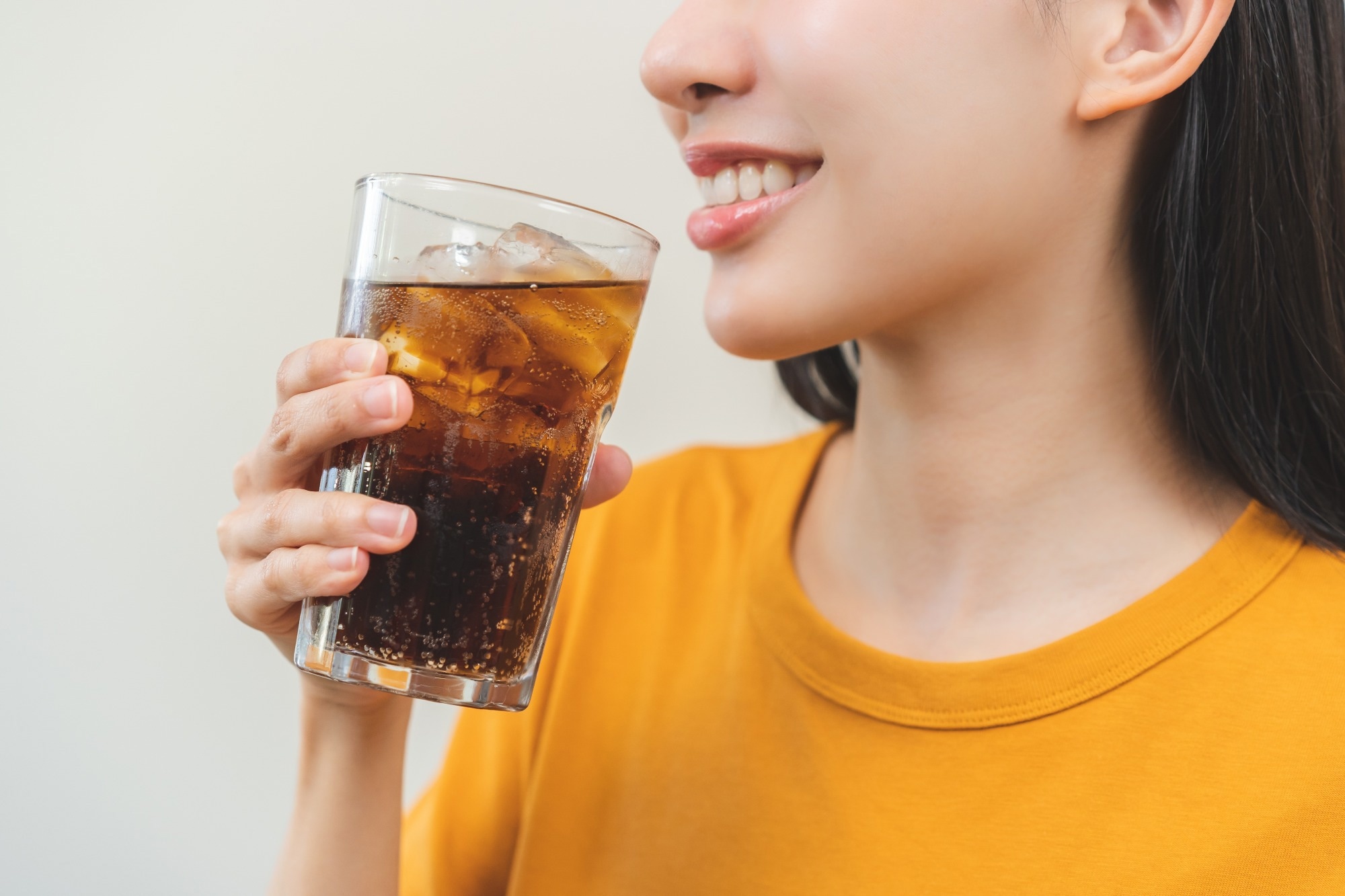By turning daily drink tracking into interactive coaching, researchers found that tailored chatbot feedback not only curbed teens’ sugar consumption but also revealed how digital reinforcement can drive real behavioral change.
 Study: Sugar intake trajectories in adolescents: Evaluating behavioral change with group-based trajectory modeling. Image Credit: Kmpzzz / Shutterstock.com
Study: Sugar intake trajectories in adolescents: Evaluating behavioral change with group-based trajectory modeling. Image Credit: Kmpzzz / Shutterstock.com
A recent study published in PLoS ONE investigates how teenagers respond to a personalized chatbot intervention designed to reduce their sugar intake.
How chatbots could help teens maker healthier drink choices
Drinking sugar-sweetened beverages (SSBs) increases the risk of cancer, metabolic syndrome, dental caries, poor mental health, and addiction. Despite these adverse effects, SSBs remain widely available and popular, particularly among teenagers.
Researchers have investigated the utility of various approaches to mitigate SSB intake among adolescents, of which include traditional one-way mass media campaigns and interactive text-based interventions. Although these efforts provide temporary improvements, there remains an urgent need to identify immediate and individualized methods that can effectively regulate SSB consumption behaviors.
Chatbots have emerged as promising tools that can promote weight management and support healthy lifestyles through real-time monitoring. The benefits of chatbots can be further optimized by incorporating adaptive intervention strategies to personalize feedback based on individual responses.
Dietary trajectory analysis further supports the individualization of this method by assessing variations in individual dietary behaviors, such as SSB consumption, over time. One example is group-based trajectory modeling (GBTM), which can be used to quantify the effects of a personalized dietary intervention based on individual responses to ensure its efficacy.
The R-Ma Bot experiment: How teenagers received personalized feedback
In the current study, study participants evaluated the efficacy of the ‘R-Ma Bot’ chatbot in reducing their consumption of sugar, sodium, and caffeine from carbonated and/or energy drinks over a period of 14 days. A total of 42 adolescents residing in South Korea used the R-Ma Bot intervention.
The chatbot provided two types of intake-based tailored feedback that was either reward- or education-based. Whereas a study participant who reduced or maintained their intake of sugar, sodium, or caffeine was provided reward-based feedback, increased intake of these SSB ingredients was addressed through education-based feedback.
Points were allocated for each dietary ingredient based on intake reduction from the previous day. For example, a weak reward of 50 points was provided when the study participant did not report an increase or decrease in their intake, whereas 100 or 200 points were granted when a study participant completely abstained from or reduced their intake of a specific ingredient, respectively.
Conversely, increased intake of sugar, sodium, or caffeine was addressed with educational infographic slides that increased in intensity as intake increased. These slides included information about the health consequences of excessive SSB intake, recommended intake levels, and alternative beverage options with lower sugar, sodium, or caffeine content to encourage healthier choices. However, the study noted that the most intensive "specific education" feedback was designed but not actually delivered, as no participants triggered this level during the 14-day period.
Personalized feedback significantly reduced sugar intake
The study cohort was classified based on their SSB ingredient intake trajectory, which included reduction, maintenance, and no-intake groups that comprised 38.1%, 57.1%, and 4.8% of all study participants, respectively. Within each group, as well as between groups and for the same individual, significant fluctuations in daily sugar intake were observed over time, thus emphasizing the importance of tailored interventions.
At baseline, study participants in the reduction group reported 39.8 g/day of sugar intake that reduced to 1.8 g/day by the end of the intervention. Those in the maintenance group reported a gradual reduction in their sugar intake that was maintained at about 9.2 g/day.
The type of intervention, time, and trajectory group all interacted with each other to modulate the final outcome. Although no specific feedback type was statistically more effective than the advanced education group (which served as the reference), the overall time-dependent interaction indicated a cumulative reduction in sugar intake across the 14-day period. Importantly, the current study was underpowered for this type of direct comparison and lacked a control group.
Racial and ethnic minority adolescents, as well as those of an older age, were most likely to significantly reduce their sugar intake. Comparatively, Korean native adolescents exhibited consistent responses to the different interventions across trajectory types.
Behavioral change is not drive by singular decisions but shaped by the accumulation of repeated reinforcement experiences over time.”
The study findings suggest that reinforcement-based tailored feedback may help reduce or stabilize SSB consumption levels over time. Nevertheless, additional studies using larger sample cohorts and more diverse populations are needed to monitor the long-term efficacy of these interventions to support sustainable reductions in SSB consumption.
Journal reference:
- Lee, J., Lee, H., Shim, S. Y., et al. (2025). Sugar intake trajectories in adolescents: Evaluating behavioral change with group-based trajectory modeling. PLoS ONE. doi:10.1371/journal.pone.0333389.